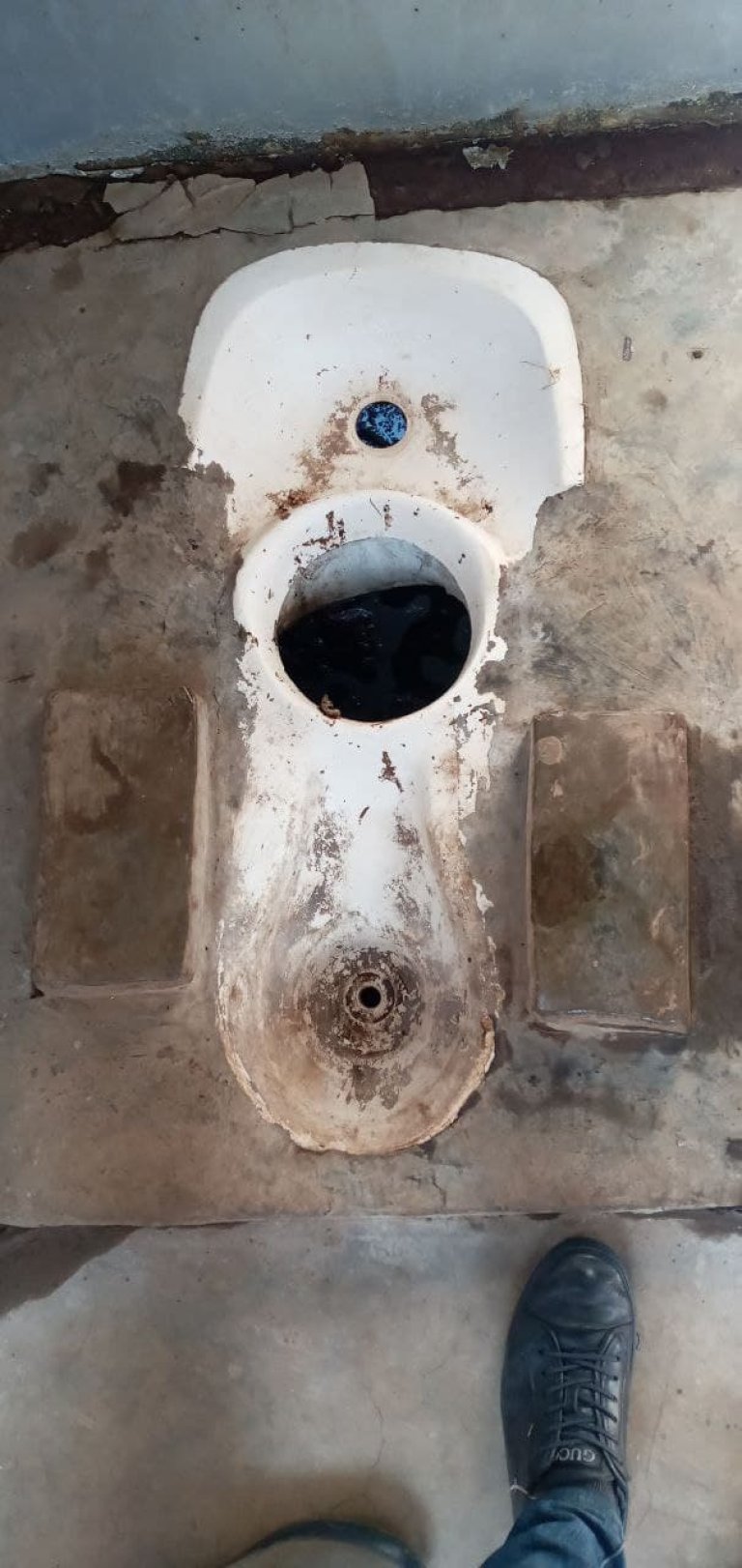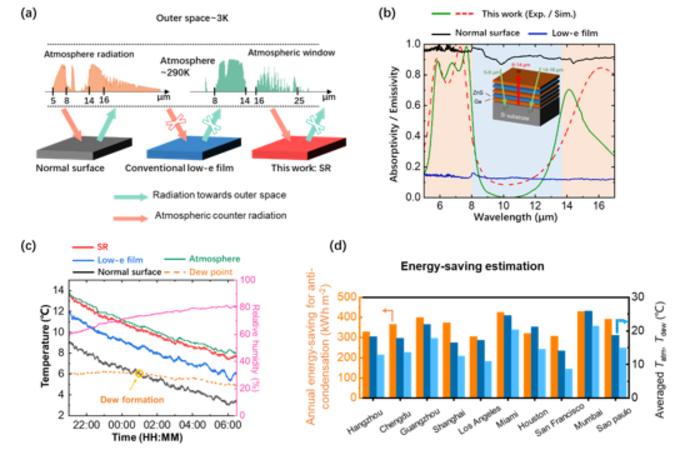
Urine-separating toilets, known as ecosan toilets, are already available in Bahir Dar, such as here at Qulkual Meda elementary school. However, the urine in these toilets is not always separated in the way it should be, and if it is, it is not collected. When the containers become full, they overflow.
Photo: Eshetu Assefa
Human urine contains essential nutrients for plant growth. The aim of the FoodsecURe project is to increase food security among Ethiopian smallholders by mainstreaming a safe sanitation value chain surrounding the collection, treatment, transportation, and application of urine-based fertilizers.
The production of mineral based fertilizers requires a significant amount of energy and relies in part on non-renewable resources such as phosphate rock. Furthermore, the price of mineral fertilizer is currently at a record high due to surging input costs and supply disruptions caused by sanctions and export restrictions.
High fertilizer prices could negatively affect food production, which in turn can lead to higher food prices, food insecurity, and political instability.
Small-scale farmers in developing countries who depend on fertilizer imports to produce food, are particularly vulnerable and at risk. Reduced crop yields and high food prices directly affect these households, and lead to food insecurity and limited economic access to health and education services.
Human urine can be a solution
Urine contains nitrogen and phosphorus, two essential nutrients for plant growth. Urine can thus serve as an almost cost-free and locally available nutrient resource for agriculture.
Despite the fact that successful, low-cost toilets that can both separate and collect urine are already manufactured at large-scale in Africa, the use of urine for fertilizer purposes is virtually non-existent.
“Large-scale recycling of human urine faces many technical, socio-cultural, economic, institutional, and ecological barriers,” says Dr Divina Gracia P. Rodriguez at NIBIO, project leader for the project FoodsecURe.
“What we want to achieve is to systematically address these barriers by looking at the interdependencies among them. In FoodsecURe, we will implement a participatory multi-discipline and multi-actor approach to combine different types of scientific expertise, experience, stakeholder local knowledge, and cultural practices.”
Over the course of four years, with 17 partners from Norway, Ethiopia, and Sweden, the researchers in FoodsecURe aim to develop a safe communal sanitation system in Ethiopia for the collection and conversion of human urine into solid fertilizer. This could improve the productivity, livelihood, and adaptive capacity of smallholder agriculture to climate change and related socio-economic conditions.
Collaboration with Ethiopian small-scale farmers
The fertilizer produced from the urine will be tested in collaboration with smallholder farmers in Ethiopia growing local crops, with a focus on crop quality and careful testing to detect any pathogenic microorganisms and environmental toxins.
New innovations often require change in behaviour, habits, and/or incur transaction costs. The researchers will therefore take an analytical approach among various pre-defined stakeholders to determine how the use of human urine for food production can become acceptable in society.
“We need to find out if the households are willing to invest in and make use of urine diverting toilets. To recycle human urine, we need to collect a lot of urine first,” Dr Rodriguez says.
The researchers are also interested in finding out whether potential consumers are willing to pay for and eat food that they know has been produced using urine.
“Although urine is considered safe to use, this does not necessarily mean that urine is culturally classified as clean. Also, farmers have preferences for what kind of fertilizers they apply in their field, so this is also something we need to take into consideration.”
Science-stakeholder interaction is key
Lack of safe sewage system
FoodsecURe will be implemented in Bahir Dar, the capital of the Ethiopian state of Amhara, located by Lake Tana. The city has approximately 500,000 inhabitants, but no sewage system. Public and private sanitation facilities are also scarce. Municipal and industrial waste from pit latrines and septic tanks is often discharged to open fields, wetlands, ditches, and on the peripheries of water bodies.
This unsafe handling of waste often results in contamination of drinking water sources, leading to outbreaks of waterborne diseases among the population.
In 2018, the city administration of Bahir Dar installed 56 urine-separating toilets as part of its “MDG Sanitation: Whole Sanitation Chain Program for the Poor in Urban and Peri-urban areas of Amhara.” Of these, 19 toilets were built in public areas for communal use, while the rest were installed in schools and private establishments.
A recent survey conducted by the Bahir Dar Institute of Technology revealed that most of the toilets are used in the same manner as pit latrines, while the rest are not used at all. Urine is either not separated at source and if it is, there is no collection of it. When the urine tanks and/or containers become full, they overflow.
“The findings from the survey are consistent with similar studies from other places in Africa,” says Dr Rodriguez.
“The systematic aspect of waste management is simply not in place. Our hope with FoodsecURe is to contribute with knowledge that can help establish and maintain a well-functioning value chain for urine recycling. This can improve sanitation conditions while ensuring that the valuable nutrients in urine do not go to waste.”
Original Article: Urine can contribute to increased food security
More from: Norwegian Institute of Bioeconomy Research | Norwegian University of Life Sciences | Swedish University of Agricultural Sciences | Bahir-Dar University
The Latest Updates from Bing News
Go deeper with Bing News on:
Urine fertilizer
- Anoushka Brims
Pop culture obsessives writing for the pop culture obsessed.
- Chris Waller
Pop culture obsessives writing for the pop culture obsessed.
- Pic nina Gary V at Paolo Valenciano ilang minuto bago ng show, umantig sa puso ng netizens
A photo of Gary Valenciano and Paolo Valenciano minutes before the former's last big show touched the hearts of netizens. It showed Gary V and Paolo in the hallway.
- Premier League: Tottenham v Arsenal & Bournemouth v Brighton
Listen to BBC radio coverage and follow live text commentary as Tottenham face Arsenal and Bournemouth take on Brighton before Nottingham Forest face Man City in the Premier League.
- How to Watch the IIHF Men’s Under-18 World Championship today - April 28: Czechia v. Sweden, Latvia v. United States | Channel, Stream, Preview
After narrowly coming away with a win over Latvia in its first game, Finland created a more convincing outcome on Friday, hammering Norway, 7-0. The Finns outshot the Norwegian, 54-12, with Emil ...
Go deeper with Bing News on:
Human urine fertilizer
- Peeing on plants is the gardening world’s hot new trend — but there’s a catch
Urine for a real shock. Gardeners are pouring pee onto their plants, saying human urine contains nutrients that make flora thrive. However, simply unzipping your pants and watering your plants ...
- Scientists want to grow vegetables using human urine - and reveal how YOU can make the natural fertilizer at home
Farmers spend $128,000 a year on synthetic fertilizers to grow their crops, but urine could offer a cost-effective alternative because it contains nitrogen and phosphorus that is essential to ...
- Hackers claim Belarus fertilizer plant infiltrated to demand political prisoner release
TALLINN, Estonia (AP) — A Belarusian hacker activist group claims to have infiltrated computers at the country's largest fertilizer plant ... a sixth term in office. Human rights activists ...
- Latest News From Fertilizer
In the study, Iowa farmers, custom operators and farm managers shared their average pricing for common agricultural services such as tillage, spraying and fertilizer application. Brian Ray is ...
- Latest News From Fertilizer
Historic prices of fertilizer have farmers looking for alternative solutions in 2022. Here are four possibilities that one day may change the way agriculture thinks about N. One of the biggest ag ...









